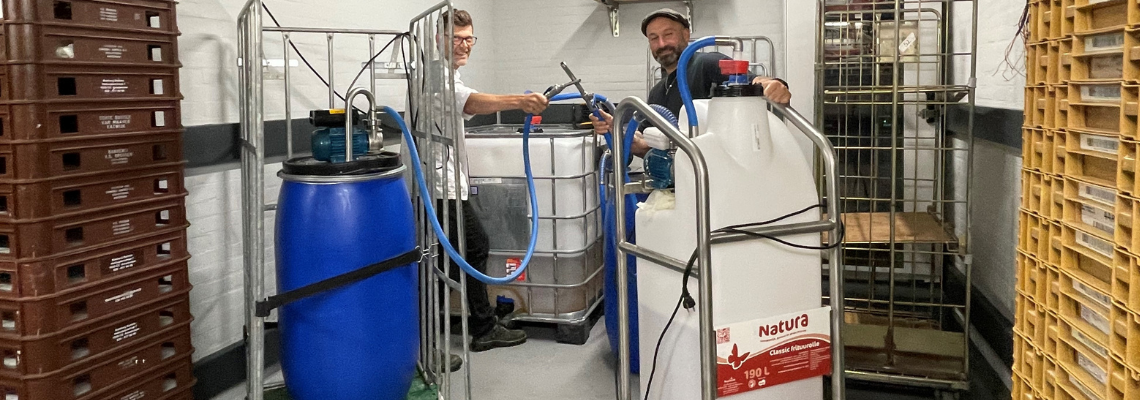Frying in a different way: from fried snacks to biofuel
At RAI Amsterdam we strive to reduce waste. While keeping this aim in mind, the RAI has started using frying oil in a circular system. This means that used frying oil is collected at the location and picked up to generate biofuel for different vehicles such as airplanes.
Moving a step forward
Previously, a considerable amount of plastic and cardboard waste was created due to packing material in which the frying oil was transported. Additionally, the frying oil was delivered at least once a week, which resulted in traffic congestion as well.
To continue responsibly, the chefs at RAI Amsterdam have partnered up with Royal Smilde Natura and decided to fry in a circular system. From now on, used frying oil is completely recycled. The oil is filtered at the RAI location from the tanks that include the oil and is subsequently pumped back to generate biofuel. This is done through an industrial process that includes filtering and settling, which converts the oil into second-generation biodiesel or kerosene.
What are the advantages?
Frying in a circular system is less harmful to the environment to a great extent: extracting biofuel from frying oil is more sustainable than other plant-based options (such as sunflower oil, soy, palm, or corn oil). This is because no agricultural land is at the expense of growing the raw materials.
Furthermore, refillable tanks are used on site, meaning less packaging is required, resulting in waste reduction and the reduction of necessary manpower to carry out the chore. In this new system, the oil is delivered in bulk and the supplier only visits us at most six times a year, resulting in a reduction in traffic pressure.
